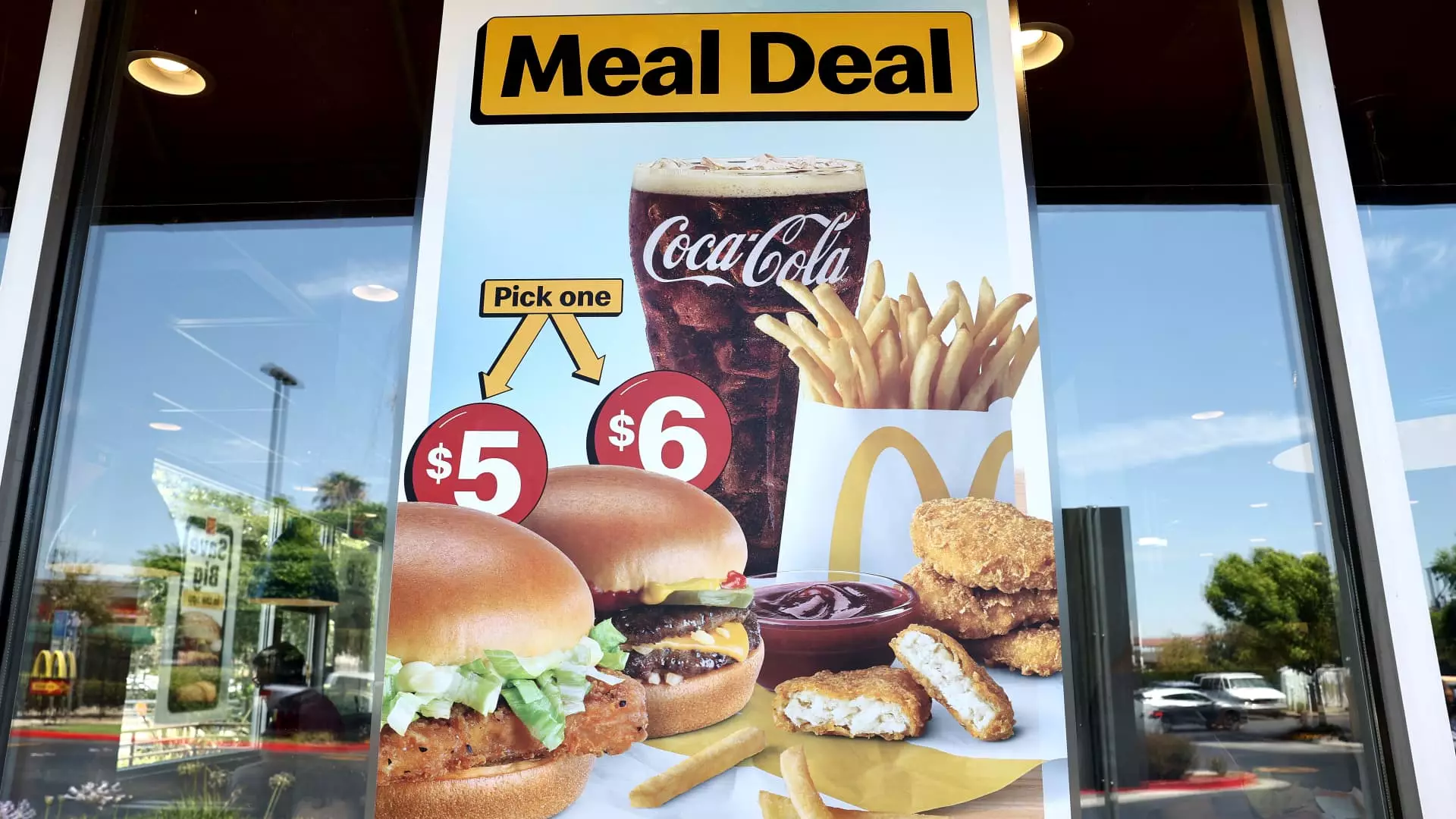In recent times, the fast-food industry has been facing significant challenges in terms of declining sales and customer traffic. As economic downturns loom large, many restaurant chains have reported sluggish sales in the second quarter of the year, with only a few exceptions like Chipotle. This decline in sales has forced companies such as McDonald’s, Taco Bell, Burger King, and Wendy’s to introduce or revive meal deals priced at $5 to attract budget-conscious customers. However, despite these efforts, Wall Street remains skeptical about the impact of these promotions on overall sales.
Several factors have contributed to the dwindling popularity of fast food among consumers. Menu prices have been steadily increasing over the years, leading many customers to view fast food as an expensive option. A recent survey by LendingTree revealed that more than 60% of respondents have reduced their spending on fast food due to high prices. This reluctance to spend on fast food has been particularly evident among low-income customers, who form a significant portion of the industry’s customer base.
The changing consumer behavior in the fast-food sector has also had an impact on investor confidence. Shares of major fast-food chains like McDonald’s, Burger King, Wendy’s, and Yum Brands have witnessed a decline in value, while the broader market continues to rise. This shift in consumer preferences has led to a fierce battle among fast-food and casual-dining chains to attract less affluent customers seeking value for their money.
To counter the decline in sales and customer traffic, fast-food chains have been introducing value meals priced at $5 to attract customers. While these promotions have led to an increase in foot traffic, concerns remain about their long-term sustainability. Without additional sales of higher-margin items like milkshakes or other add-ons, these value meals may not be profitable for the chains in the long run. Investors are wary that these discounts could erode profits and trigger a race to the bottom among fast-food chains.
Franchisees, who operate a significant number of fast-food restaurants, are also skeptical about the impact of these promotions on their profits. Many franchisees have pushed back against parent companies’ deal strategies, citing concerns about the negative impact on their bottom line. In recent years, franchisees have gained more power to resist these discounts, leading to tensions between operators and management. The reluctance of franchisees to embrace these promotions adds another layer of uncertainty to the fast-food industry’s efforts to boost sales.
The fast-food industry’s reliance on $5 meal deals to attract customers and drive sales reflects the broader challenges facing the sector. Despite efforts to offer value meals and discounts, fast-food chains continue to struggle with declining sales and changing consumer preferences. The success of these promotions hinges on their ability to convert budget-conscious customers into higher-spending consumers and drive sustainable growth in the long run. Investors, franchisees, and industry analysts will be closely monitoring the impact of these value meals on the financial performance of fast-food chains in the coming months.


Leave a Reply